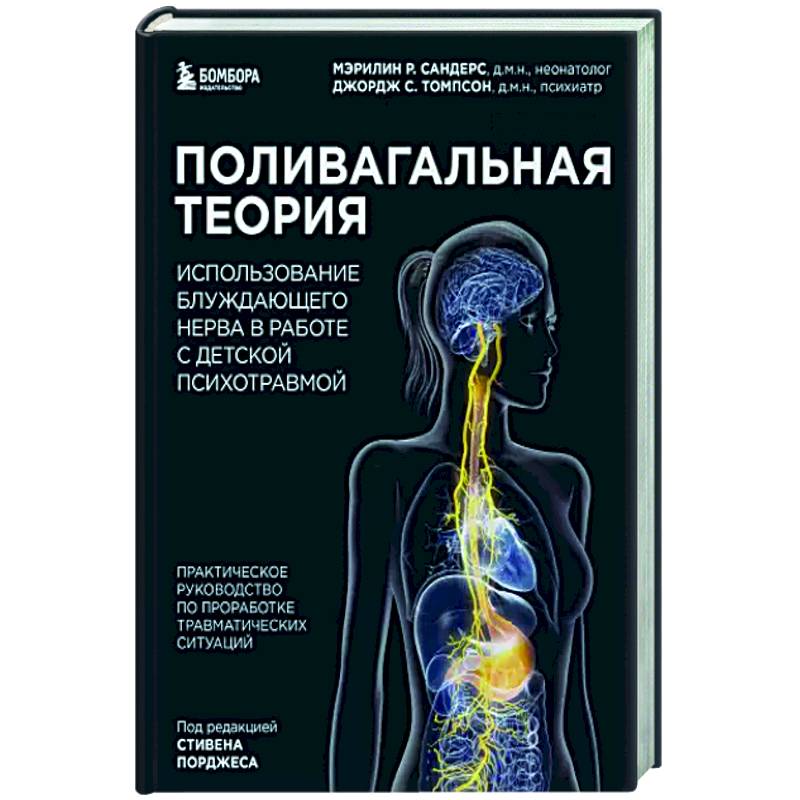Polyvagal Theory. Using the vagus nerv in working with childhood psychological trauma
Please sign in so that we can notify you about a reply
When children do not feel safe or are subjected to chronic emotional, physical, or medical trauma (for example, growing up premature babies in special incubators or surgeries in infancy), they develop disturbances in their ability to form close, harmonious relationships in the future. There can be problems with behavior and physical development. The Polyvagal theory describes how an unconscious sense of safety or danger in infancy affects our future emotions and behavior.
Pediatrician and neonatologist Marilyn Sanders and child psychiatrist George Thompson explain how parents, educators, and psychologists can address childhood trauma and prevent it from impeding future development.
In addition, you will learn:
- How to help a child recover from physical or emotional trauma,
- What the neuroceptors of safety and danger are and how they are formed,
- How the Polyvagal theory can be applied in everyday life
Pediatrician and neonatologist Marilyn Sanders and child psychiatrist George Thompson explain how parents, educators, and psychologists can address childhood trauma and prevent it from impeding future development.
In addition, you will learn:
- How to help a child recover from physical or emotional trauma,
- What the neuroceptors of safety and danger are and how they are formed,
- How the Polyvagal theory can be applied in everyday life
Author:
Author:Сандерс Мэрилин Р., Томпсон Джордж С.
Cover:
Cover:Hard
Category:
- Category:Medical Books
Publication language:
Publication Language:Russian
ISBN:
ISBN:978-5-04-164187-0
No reviews found
